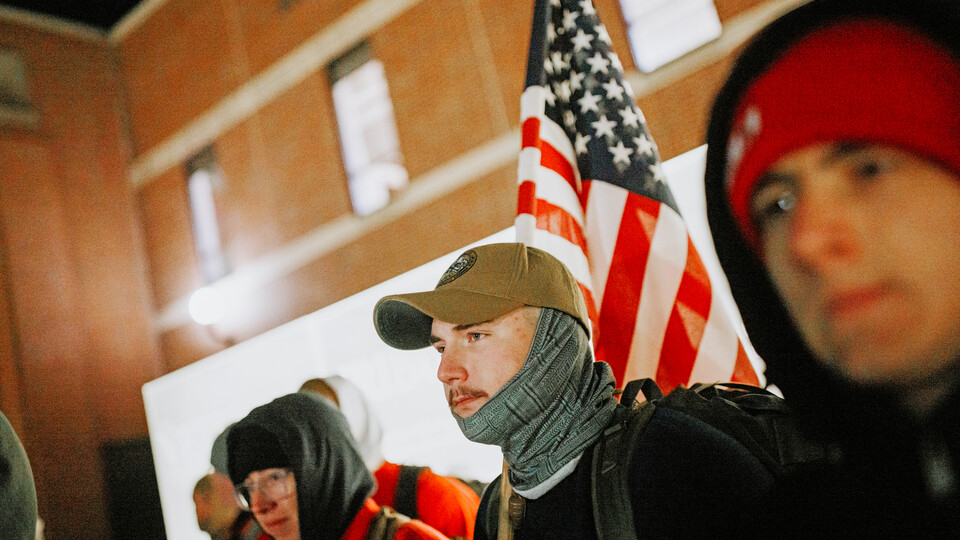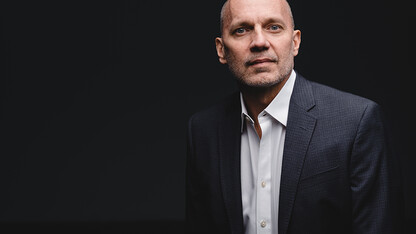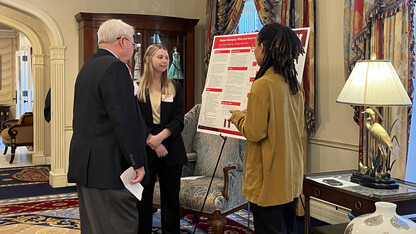· 5 min read
‘Worth it’: Bonow logs 35 miles to honor veterans lost to suicide

Throughout his time at the University of Nebraska–Lincoln, midshipman Cohan Bonow has gotten the chance to be involved with pre-football game color guards, 9/11 memorial stair runs and more. Now, he’s helping raise awareness for veteran suicide through the annual The Things They Carry Ruck March. The senior business management major and Naval ROTC student from Windsor, Colorado, described what the ruck march means to him.
Describe the ruck march for someone who has never heard of it.
The Things They Carry Ruck March is a tradition between the University of Nebraska–Lincoln and the University of Iowa. Each year, prior to the Thanksgiving-time rivalry game, a football is carried from the visiting stadium to the hosting stadium, totaling 325 miles. Along the way, participants typically carry a backpack or some weight totaling 22 pounds. This symbolizes the 22 veterans a day who tragically take their own lives. The march is to honor them and raise awareness for veteran suicide.
What goes into preparing for an event like this?
The event is open to virtually anyone who wants to participate. Typically, a decent level of physical fitness is helpful. Overall, what really matters, though, is a dedication to the cause and a willingness to, what many people in the military call, “embrace the suck.” Rucking 15, 20 or 30-plus miles — or however much of the ruck you choose to participate in — might be a little bit painful, and it may be a struggle, but the challenge is worth it to raise awareness for veteran suicide, and ultimately it’s nothing compared to the pain and struggles so many veterans and their families have gone through.
What is the schedule of the march?
Each day of the ruck looks a little different, depending on which leg of the march you sign up for. There are people who sign up for single days, half days or even multiple days. Typically, each day is about 30 to 40 miles of rucking which, depending on the speed of the group, takes anywhere from six hours for a half day, up to 12 hours for a full day. For me personally, I am signed up for the first day of the ruck, which will consist of 30 miles from Memorial Stadium to Ashland, Nebraska.
We are leaving Memorial Stadium at 6 a.m. I personally will wake up at 4:30 a.m. so I have enough time to eat breakfast, stretch and warm up. Each day of the ruck march starts at the same time, 6 a.m., going until the distance set for the day has been covered. For participants doing multiple days, an RV follows them and they stay the night in the RV.
Is this the first time you’re taking part in the Ruck March?
This is the first time I am personally rucking. I have had several friends who have participated in the past, and I have always supported the cause. I am very excited to officially participate.
Talk about the importance of raising awareness for veteran suicide.
Any amount of veteran suicide is too much, let alone 22 a day. It is truly tragic that so many who sacrificed so much for their country often come home to an even more difficult battle. The ruck march is just as much about raising awareness inside the veteran community as it is outside the community. It is important that veterans recognize how important it is to reach out to one another, to check in on one another and to know that there is no shame in asking for help. For me, anything I can do to try to raise awareness for the cause is worth it.
Are you involved with (or have taken advantage of) the Military and Veteran Success Center on campus? If so, why is having that resource important or what resources in that office have helped you?
I’ve had access to the Military and Veteran Success Center over the course of my four and a half years at UNL. I have taken advantage of some free tutoring services they offer, but there is so much more there than just that. They offer countless valuable resources to veterans and those currently serving. It’s truly an invaluable resource for many on campus, and one I absolutely recommend taking advantage of and getting involved with.
What advice would you give to others who want to make an impact?
It is important for those outside the veteran community to recognize what an uphill battle so many veterans face coming home. It’s often very hard for them to get treatment, even after speaking up. Due to the nature of the VA system, the treatment is unfortunately often much less than what they deserve. It is often much harder for them to step back into the civilian world so for those that do struggle with it, it is important that people are patient and understanding. It is important, as mentioned earlier, for veterans to know the importance of checking in on one another and not being ashamed to ask one another for help. Reach out to your friends and check in on them. You never know what someone might be struggling with.
What’s next for you?
I’m graduating this December and will commission as an officer in the Navy. I have been ordered to DDG 64, The USS Carney, home-ported out of Florida, where I will serve as a surface warfare officer.







